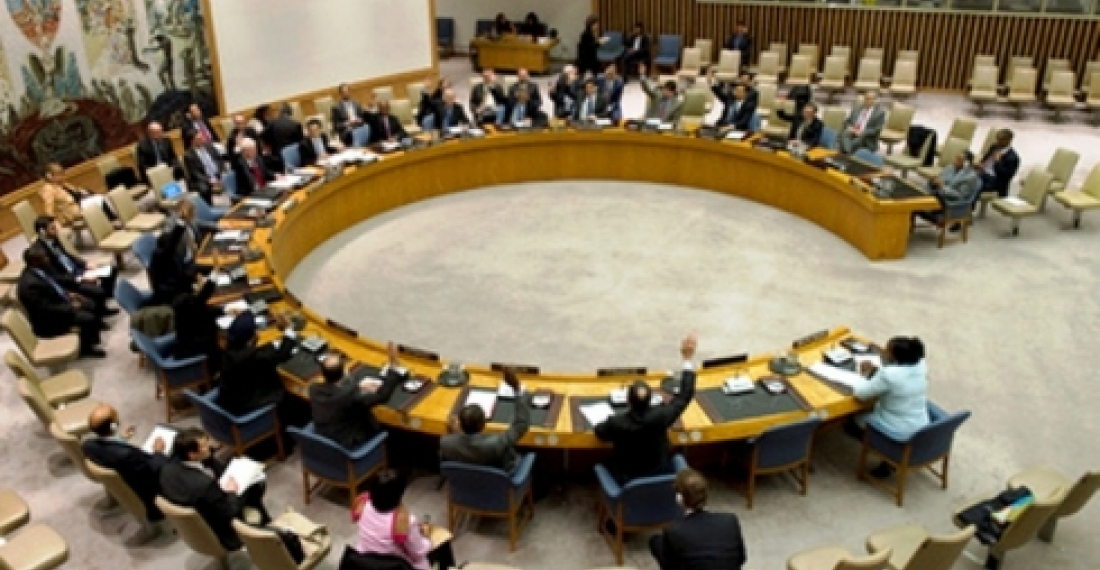Azerbaijan will take over the Chairmanship of the UN Security Council in May, marking a high point in the country's foreign policy. Although the chairmanship rotates monthly on alphabethical basis and is not elective, it will reflect the fact that Azerbaijan has become an important regional and international player.
The Permanent Representative of Azerbaijan to the United Nations, Agshin Mehdiyev, this week met with the United Nations Secretary General Ban Ki-moon to discuss the upcoming Chairmanship. Trend News agency reports that during the meeting the sides exchanged views on the work of the Security Council, strengthening the fight against terrorism and the maintenance of international peace and security. Trend said in its report that they also "discussed possibilities of further deepening cooperation with the organisation, the situation in the South Caucasus and a number of other issues."
The chairmanship of the Security Council is usually guided by the priorities of the world body. Its work is done mosty behind the scenes in consultations with the other members of the 15-country body, and particularly with the five permanent members of the Council, Britain, China, France, Russia and the United States, who hold veto power in the Council and thus are able to halt any proposal or initiative.
The Security Council deliberates on problems of global peace and security as they arise. At the moment the most important issue is Syria, where the UN is slowly getting involved in trying to find a solution to the serious civil conflict in the country. The Security Council has been split on Syria, and has only in the last weeks started developing a consensus, including on the deployment of UN observers in the country. Other issues that may come up in May are Korea, and Iran. Azerbaijani diplomacy will be stretched to its limits as it will deal with these issues on which opinion in the world body is divided. It is likely that Foreign Minister Elmad Mammadyarov will represent Azerbaijan in some of the sessions of the Security Council chaired by his country. This is customary.
Commonspace.eu political editor said in a comment: "It is not clear to what extent Azerbaijan will use this opportunity to put forward new initiatives related to the Nagorno-Karabakh conflict. Certainly the chairmanship gives some opportunity to influence the agenda of the Security Council. However the chairing country needs to be extremely careful not to be seen hijacking the work of the Council. The permanent members in particular expect that the President of the Security Council will spend time and energy narrowing differences between the Council members, and reflecting accurately the views of the Council to the outside world. In the past countries that tried to use their month long chairmanship of the Security Council to push their own agendas have not only failed but also became quite unpopular in Council circles, something which could affect their performance after the period of chairmanship ends. However there will be some allowance made to the priorities of the country presiding the Council within limits. How Azerbaijan plays this card will say a lot on its foreign policy and the ability of its diplomacy."
source: commonspace.eu with Trend News Agency
photo: The United Nations Security Council in session (Archive picture courtesy of the United nations Press Service).







